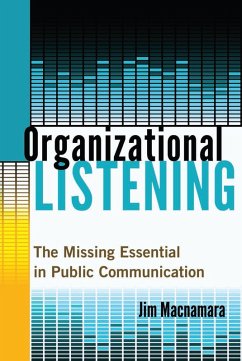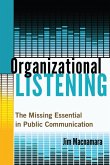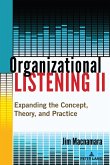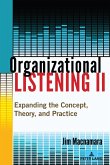Organizations, which are central in contemporary industrialized and post-industrial societies, including government departments and agencies, corporations, and non-government organizations, claim to want and practice two-way communication, dialogue, and engagement with citizens, customers, employees, and other stakeholders and publics. But do they in reality? Voice - speaking up - is recognized as fundamental for democracy, representation, and social equity. But what if governments, corporations, institutions, and NGOs are not listening? This book reports the findings of a two-year, three-continent study that show that public and private sector organizations devote substantial and sometimes massive resources to construct an 'architecture of speaking' through advertising, PR, and other public communication practices, but listen poorly, sporadically, and sometimes not at all. Beyond identifying a 'crisis of listening' in modern societies, this landmark study proposes and describes how organizations need to create an architecture of listening to regain trust and re-engage people whose voices are unheard or ignored. It presents a compelling case to show that urgent attention to organizational listening is essential for maintaining healthy democracy, organization legitimacy, business sustainability, and social equity. This research is essential reading for all scholars, students, and practitioners involved in politics; government, corporate, marketing, and organizational communication; public relations; and all those interested in democratic participation, media, and society.
Dieser Download kann aus rechtlichen Gründen nur mit Rechnungsadresse in A, D ausgeliefert werden.









